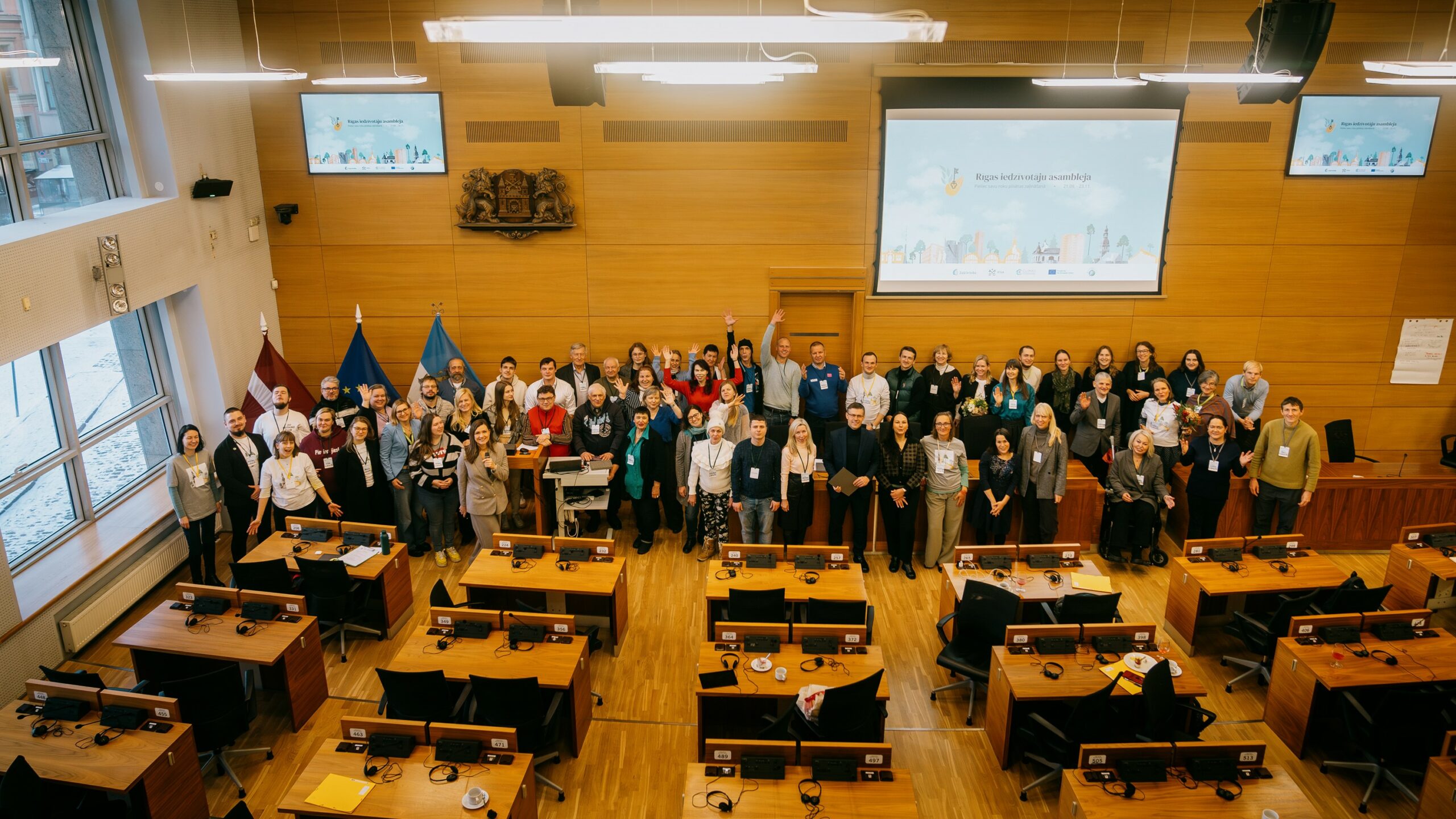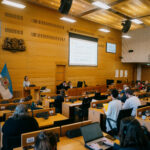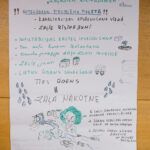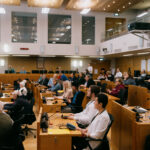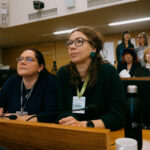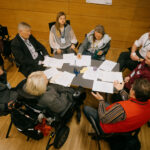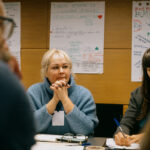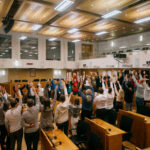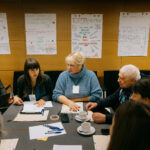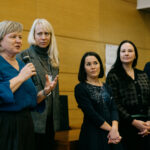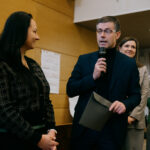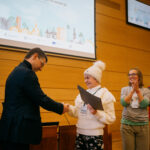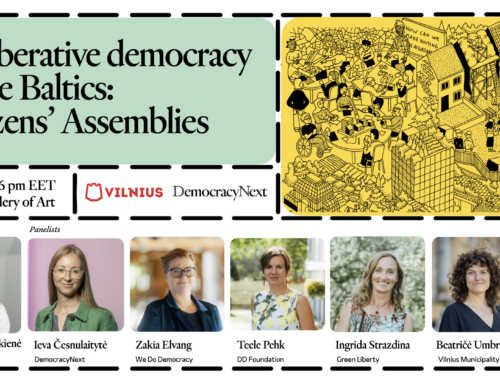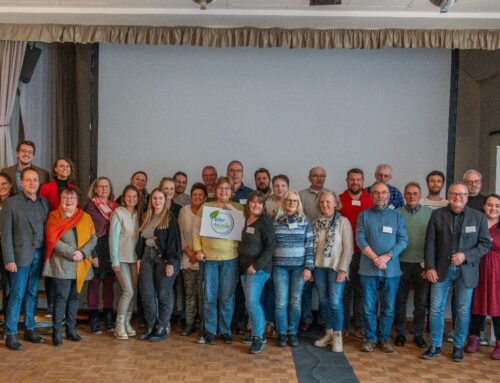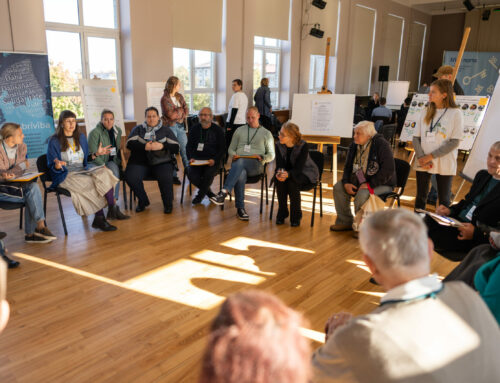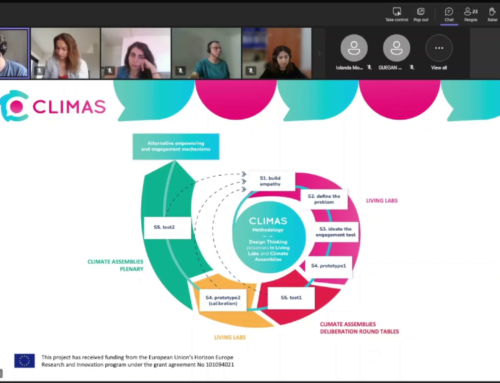The first Riga Citizens’ Climate Assembly in Latvia concluded on November 23.
During the assembly, participants met on 5 Saturdays over a two-month period and developed 49 recommendations for Riga’s Urban Greening Plan 2027-2031. The final session, held on 23 November in the Riga City Council Town Hall, supported
41 recommendations. At the end of the day, they were formally submitted to the Riga City Council for consideration.
The Riga Citizens’ Climate Assembly was initiated by the organisation “Green Liberty” and implemented in cooperation with the Riga City Council.
The assembly was organised based on CLIMAS tools and focused on issues related to climate change adaptation, such as rain water flood mitigation, heat island mitigation, urban biodiversity and access to green spaces. Some of the ideas that the assembly decided to take to the Riga City Council:
- when designing and implementing projects, include stormwater solutions that encourage rainwater absorption and, when designing extensive green spaces, include solutions for the use of rainwater for irrigation;
- prepare guidelines (short, concrete, visually engaging) on what citizens can do to green their yards, create biodiverse meadows, plant greenery, put out flowerpots, plant around trees, etc., thus raising awareness and educating citizens on greening;
- setting up competitions for neighbourhood and housing associations with small grants (up to €500) that provide resources for greening (e.g. purchase of black earth and plants).
The Riga City Council will take the recommendations into account when developing the Riga Urban Greening Plan. For the Riga Citizens’ Climate Assembly, 35 Riga residents of different age groups, professions, political views, educational and economic levels, etc. were selected. The composition of the assembly participants can be described as representative of Riga’s mini society.
During the Assembly from 21 September to 23 November, the participants gained knowledge about climate change, natural diversity in urban environments, green wastewater solutions, forest management principles, and went on sensory adventures, imagining the city as a garden and taking inspiration from forest therapy.
During the final session of the Assembly participants clarified remaining key issues, voted on the final recommendations, shared what they found most valuable about the Assembly process and one recommendation they found most important, and then submitted 41 endorsed recommendations to the representative of the Riga City Council. In the session’s conclusion the participants heard also about various citizen public participation opportunities where anyone can be involved.
The organisers of the Assembly believe that the Climate Assembly, as an effective method of public participation in decision-making, could be used in the future in every Latvian municipality to address various topics and issues, thus promoting both communication and trust between citizens and public institutions in the long term in the context of climate adaptation.
The Riga Climate Assembly is organised by “Zaļā brīvība” together with the Riga City Municipality with funding from the European Union Horizon Programme within the project “CLIMAS: Citizen Engagement Toolkit for Building Societal Resilience in the Context of Climate Change”. More information about the previous meeting can be found in the CLIMAS blog post, while an overview of the citizens’ assembly can be found on the official website.
Gallery
Picture credits:
Jānis Spurdziņš
Press review
- Latvijas sabiedriskie mediji
- Latvijas sabiedriskie mediji
LinkedIn
Instagram
Author: Zaļā brīvība
The CLIMAS Project has received funding from European Union’s Horizon Europe under Grant Agreement N° 101094021. Follow CLIMAS on LinkedIn, Instagram and X, or subscribe to the newsletter to stay updated with the latest activities! 